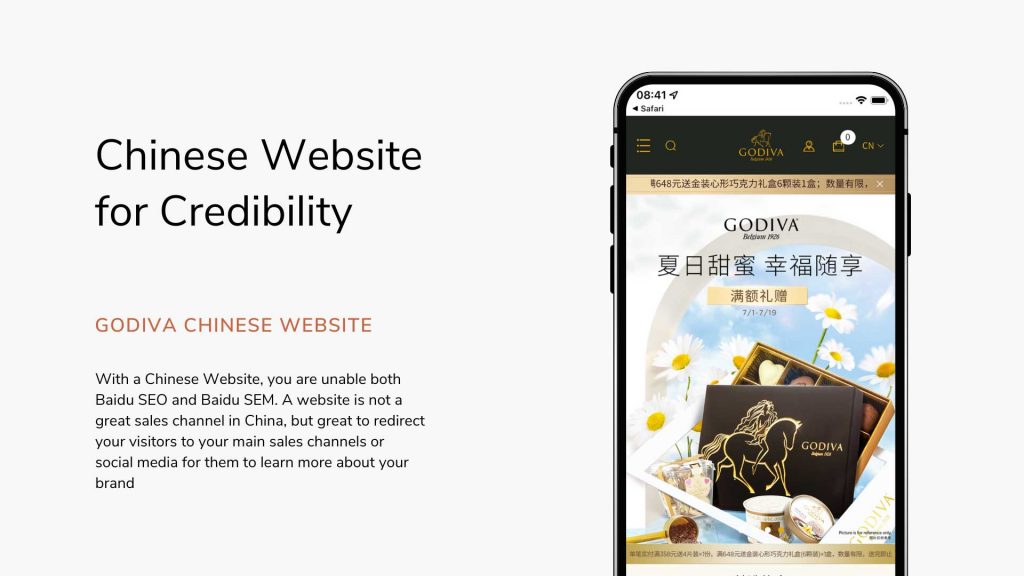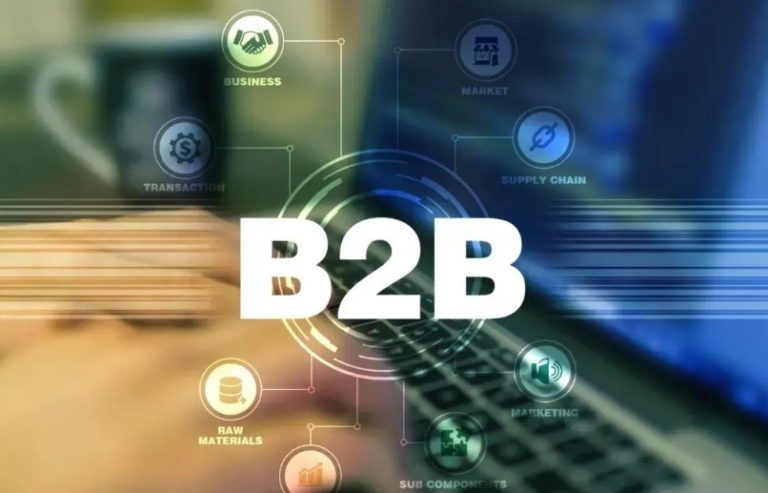5 mistakes that B2B firms do ALL the time in China

It is pretty obvious for most B2B companies doing business in China for a long time that you have to adapt or your fate will be called failure.
Cost-Effective Agency
KPI and Results focused. We are the most visible Marketing Agency for China. Not because of huge spending but because of our SMART Strategies. Let us help you with: E-Commerce, Search Engine Optimization, Advertising, Weibo, WeChat, WeChat Store & PR.
Many have struggled and had to make constant changes before reaching success.
All made errors, the successful ones learned from them and prospered, and the stubborn ones crashed even before taking off.
You can escape an unfortunate fate or succeed; the choice is only yours.
If you want the force to be with you, and thrive in this market, you have to learn from the wise.
We compiled here the top 5 mistakes that B2B firms do all the time in China.
You can benefit from the experience of your peers and avoid the most common ones: `
Cold calling 0% return
Is your plan to hire a sales team dedicated to the Chinese market?

You got approval. Of course, you will need some sales speaking Mandarin to sell your products.
Will you ask them to put themselves on cold calling machine maniacs mode and reach hundreds of prospects per day?
That’s a big NO.

It may work for other markets, but in China with this approach then you head for a fall.
You will see 0 results. You will put pressure on yourself, blaming the sales for not doing well their jobs, putting all the pressure on them. Receiving letters of resignation after letters of resignation, letting you with an empty sales team.
Why?
They are harassed by tons of impromptu sales calls every day. They would pass their day on the phone if they accepted all the incoming sales calls. They certainly have a job to do and are fed up with these.
Chinese buyers will not wait for a miraculous call. When they have a demand for certain products, they will do a search job on the Chinese internet, mostly on the n°1 search engine: Baidu. Note that they won’t use English to do their research, they will use Mandarin only.
Your job will have to make sure that are visible on Baidu, and that buyers find your info very easily. Because basically, they will send their RFQ to the first 10 firms visible on the search engine.
To make sure that buyers find you and allow you to receive leads, you have to implement a digital lead generation strategy.
That means getting a website:
-In Mandarin
-Hosted locally (in China (requires an ICP license), or in Hong Kong). Hail to the great firewall blocking/slowing websites outside of the middle empire.
-Optimized for China: be careful with sensitive content, not using google maps, FB, or IG links…and make sure you have a mobile-friendly version.

As importantly as:
Invest in a solid SEO strategy. You may have the best website in the world, but if people cannot find you, that will be useless.
SEO will help you to have a good ranking on Baidu and make sure people will come across your website. This strategy requires a few months of patience and work but it is the most sustainable way to reach customers and generate leads.
As a result, no more frustrated sales team, they will be motivated by having qualified leads =Happy them = Happy you!

This is the exact pattern that one of our clients who manufactures packaging assembly lines had follow. He thought that having a sales team doing cold calling and emailing was the solution like it was on its current market. One year later, the team has 0 serious leads. He came to us for help. We helped him to get an optimized Chinese website, and implement a strong SEO strategy for Baidu and after 6 months he started to received more than 100 qualified leads per months. He by the occasion reduced its sales team to the minimum, reduce salaries costs and improving the comfort of work of its sales team.
Flight to any meeting
As a B2B firm, if you have a 5% sales conversion rate, that would rank you among the most performing companies.

China covers 9.6 million square kilometers. Imagine the stratospheric budget it would imply if you let your Chinese sales team travel for every meeting for signing (in a perfect world) only 5%. It might be an occasion for your sales to visit the country, but such a money pit for your company.
Most of the deals will not necessarily meet in person. And the trend had sharply increased since the zero Covid-19 strict policy in China tends to last, limiting all travel even internally.
Buyers and sellers are already accustomed, and having online meetings is the new normal.
Some (big) deals might still need to meet face to face, but it has to happen only if your chances to close are high and if it’s worth the money.
Don’t work on their reputation FIRST
It happened to many B2B firms to receive tons of leads (thanks to their SEO strategy) but end with closing no deals at all.

Again, the reflex would be to look in the sales team’s direction.
Before raging toward them, there’s one essential point you need to work on and check.
You have to put yourself in the Chinese buyers’ shoes.
Scams and counterfeits are legions in China. It is easy to get trapped and lose money.
So as part of their purchasing process, Chinese buyers will check your legitimacy and reputation on the market.
They will check on the Chinese internet with their peers if any had bought from you in the past. If they had a good experience, if they are satisfied with your products and services…
To do so, they will check on forums like Zhihu (similar to quora) feedback from other buyers.

Online media are also a good medium to evaluate your reputation. Indeed, Chinese buyers have trust in their media. So, if online media publish articles about you, it will be seen as additional proof of reliability.
Your reputation in China will rely on the word of mouth. You need to make sure that buyers and media speak about you positively. Remember that no one will take the risk to be the first to buy. Chinese buyers are not adventurous and do not take any risks. They have a plethora of choices. Between a company that has no reputation (or a bad one) and one that has an established reputation in China, the choice is easily made.
With that in mind, you have one of the most important keys to transforming the leads into signed deals, and of course some talent from your sales.
To come back to our client mentioned above, working on its reputation helped him to improve its conversion rate by 2 and to get 10 more new clients per month.
Don’t adapt their offer/services to China
If you enter the Chinese be ready to adopt your products and services to the local market.
Dive into the market with that in mind: “in China for China”.
That’s especially true when it comes to client support. Either before or after sales, Chinese buyers expect a very fast answering time. Make sure you have a Chinese-speaking team in the same time zone. In some cases, 24/7 Chinese-speaking technical support is a must (especially true for factories and other businesses running nonstop). Make sure to have adapted means of communication like a WeChat account or a chatbot on your website.
Make sure the product itself is fitting the market, it can be the packaging, the technical specifications, the training, the size, or the color… Everything has importance and has to be carefully studied beforehand. Make sure before entering the market that you will be able to modify your product so it can fit with the buyers’ requirements and expectations.
Underestimate Chinese competition
According to Statista, by the end of 2021, more than 48 million companies had been registered in China.

The figure talks for itself. The competition in China is huge and fierce.
Ignoring this competition would be a terrible mistake.
Chinese companies have many advantages compared to you:
-They know the market and their buyers better than you do
-They are native speakers
-They know the business culture and customs better than you do
And contrary to the common belief, Chinese firms are constantly upgrading to a higher range. They are neck to neck with international standards of quality. They have a qualified educated working force. So don’t expect it to be a piece of cake.
Read more
Doing Business in China
Forewarned is forearmed: Doing business in China as a B2B firm is not easy but if well prepared and ready to invest, then success is within reach. Go step by step, don’t rush. Being armed with good tools and a good strategy is compulsory.

Lucky you, you don’t have to do the same errors as the ones who precede you and avoid major setbacks.
We have worked with more than 100 B2B companies to develop their business in China.
Send us an email to receive our Best practices, our case studies or to book a free call with one of our B2B consultant. .






